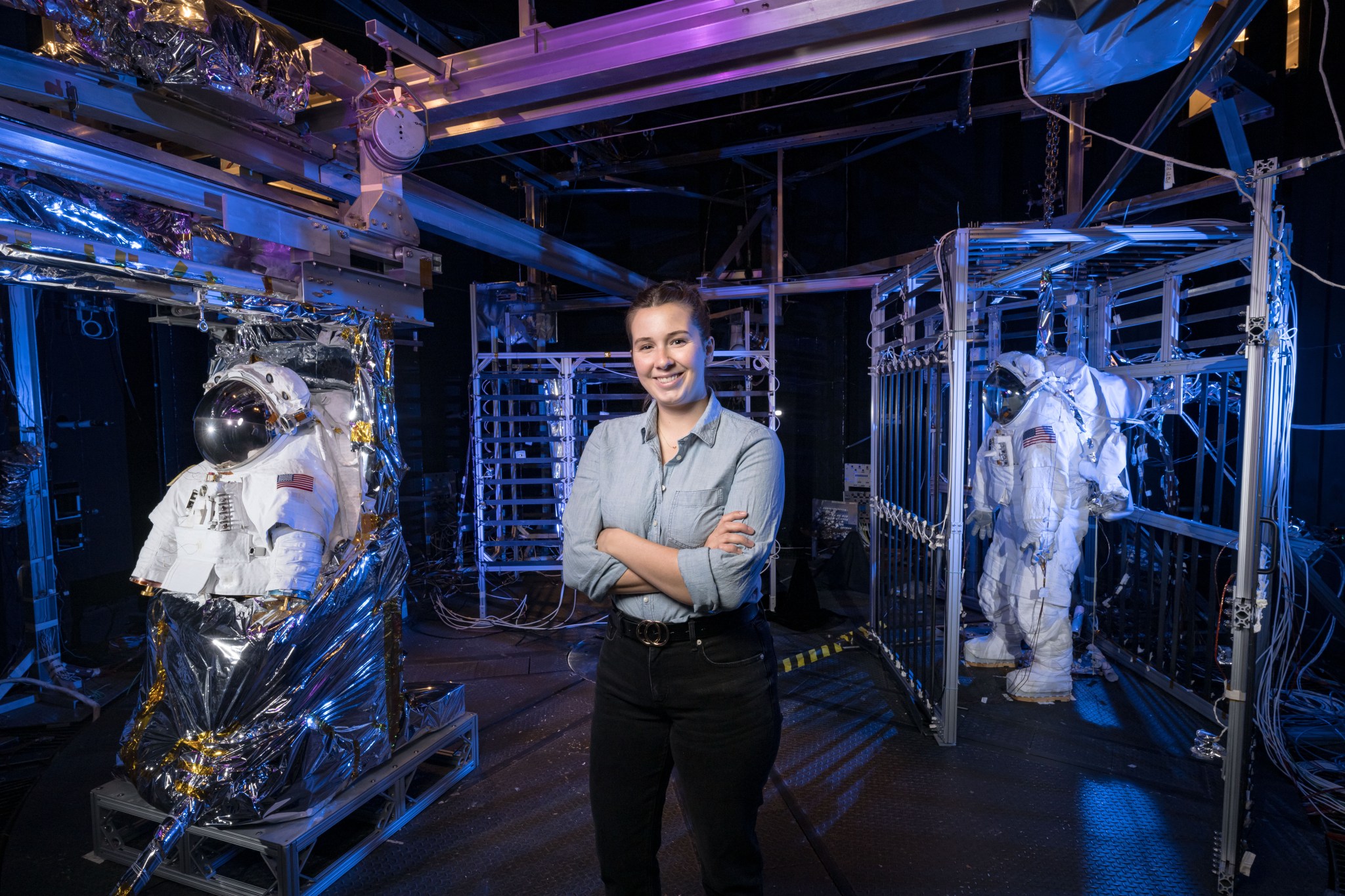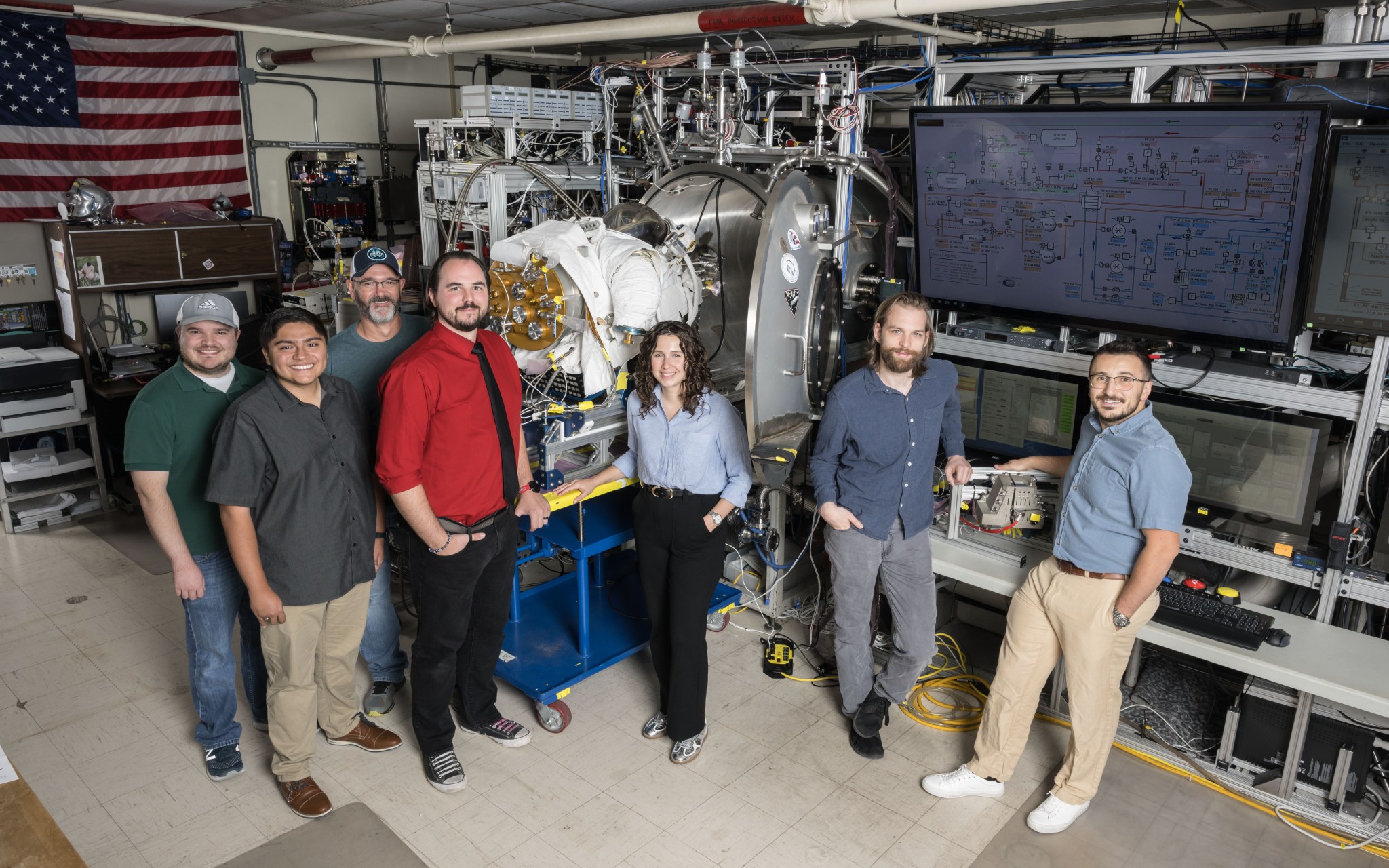In her six years working with NASA, Miranda Peters has filled a variety of roles. She trained in flight control for the International Space Station, worked as a safety engineer in the station's program office, and served as a project engineer working on next-generation spacesuit assembly and testing.
She has also embraced an unofficial duty: speaking openly and honestly about her neurodivergence.
"I used to hide it or avoid talking about it. I used to only see it as an impediment, but now I see how I can also do things or think about things in a unique way because of my disability," she said. Peters said that when her neurodivergence impacts her ability to do something, she is honest about it and seeks help from her colleagues. "My hope is that when I talk about it openly, I am creating an environment where others with disabilities also feel comfortable being their true selves, in addition to humanizing the disabled community for those who are not a part of it."

Over time, Peters has also shifted her self-perception. "I'm an anxious person and was made to feel self-conscious about that in the past, but that anxiety also makes me transparent about what I'm doing and where the gaps in my knowledge are, which has earned praise from team leadership," she said. Similarly, while Peters once saw her sensitivity as a weakness, she learned to appreciate her ability to empathize with and anticipate the needs of others. "That makes me a good mentor and leader," she said.
Learning to filter feedback has been another important lesson. "Advice and criticism are both useful tools, but not all of the time," she explained. "I found myself tightly holding on to all of the criticism I received. It was easier to determine which advice didn't work for me." When Peters stopped to ask herself if she would take advice from the same person who was critiquing her, it became easier to take their feedback "with a pinch of salt."

Peters applies these lessons learned as a design verification and test hardware lead within the Spacesuit and Crew Survival Systems Branch at Johnson Space Center in Houston. She currently supports tests of the Portable Life Support System (xPLSS) that will be integrated into the new spacesuits worn by astronauts on future missions to explore the lunar surface. She is responsible for assembling and disassembling test units, making hardware and software updates, and integrating the xPLSS with various components of the spacesuit, known as the xEMU.
Peters' most recent prior position was assembly and integration engineer within the same branch. She had an opportunity to serve as the interim xPLSS hardware lead when a colleague went on leave for several months, and suddenly found herself managing a major project. "We got a lot done in a short amount of time without loss of procedural integrity, even when we encountered unexpected changes in schedule," she said. "I also used this large amount of lab work as an opportunity to train new hires and interns in assembly processes." When the colleague returned, Peters was promoted to the newly created role overseeing design verification and testing.
"I really love how universal spacesuits are in their ability to excite and draw wonder from across the human spaceflight community and the general public," she said. "Working on the xEMU project has affirmed for me that human surface mobility is the field that I want to make my career." That realization inspired Peters to pursue a graduate degree in space architecture from the University of Houston, which she expects to complete in May 2026.

Peters looks forward to a future where NASA's astronaut classes include individuals with different abilities. She encourages agency leaders, contractors, and others to have open conversations about workplace accommodations early in their hiring and performance review processes. "I think if we provide the opportunity to talk about accommodations and how to request them, employees would be more empowered to ask for what they need to be successful," she said. Educating managers about available accommodations and allocating resources to expand the accessibility of those accommodations would also be helpful.
Peters hopes to pass that feeling of empowerment on to the Artemis Generation. "Empowerment to be themselves, to do the hard things, and to not limit themselves," she said. "We need to take advantage of all the opportunities we can, and not let the fear of failure or not being 'good enough' stop us from going where we want to."






